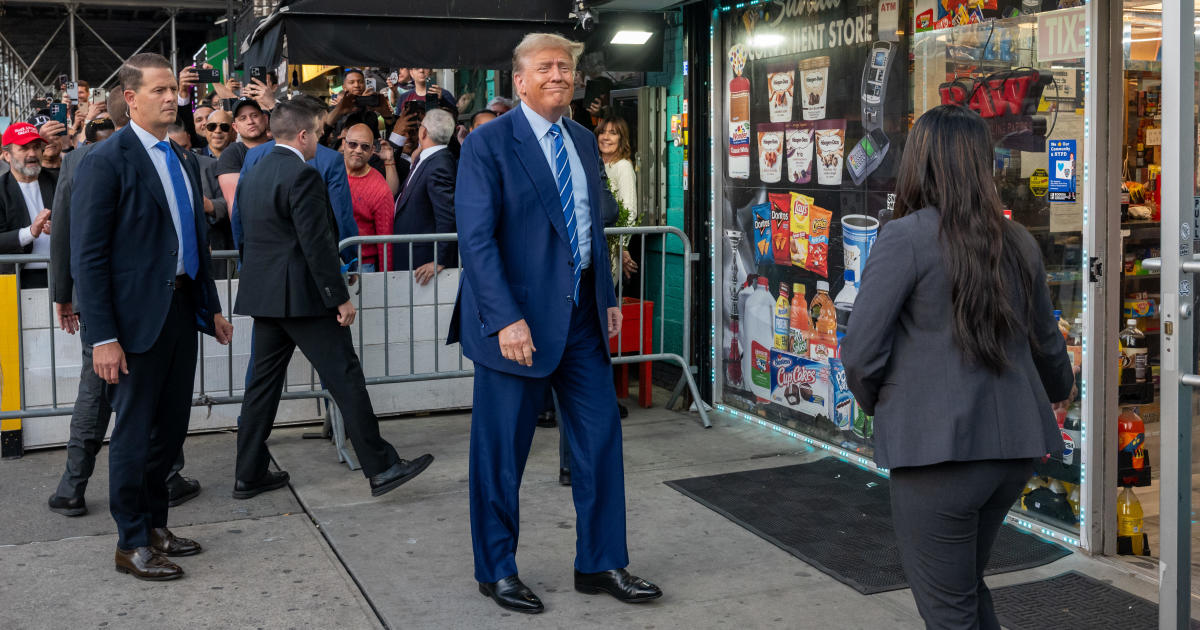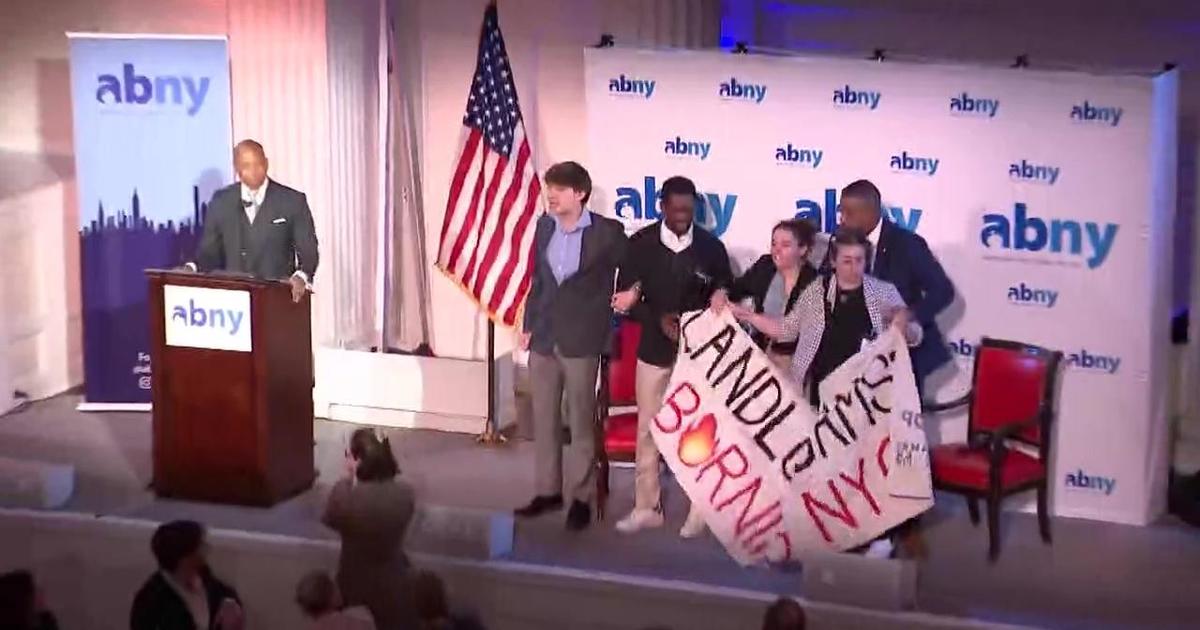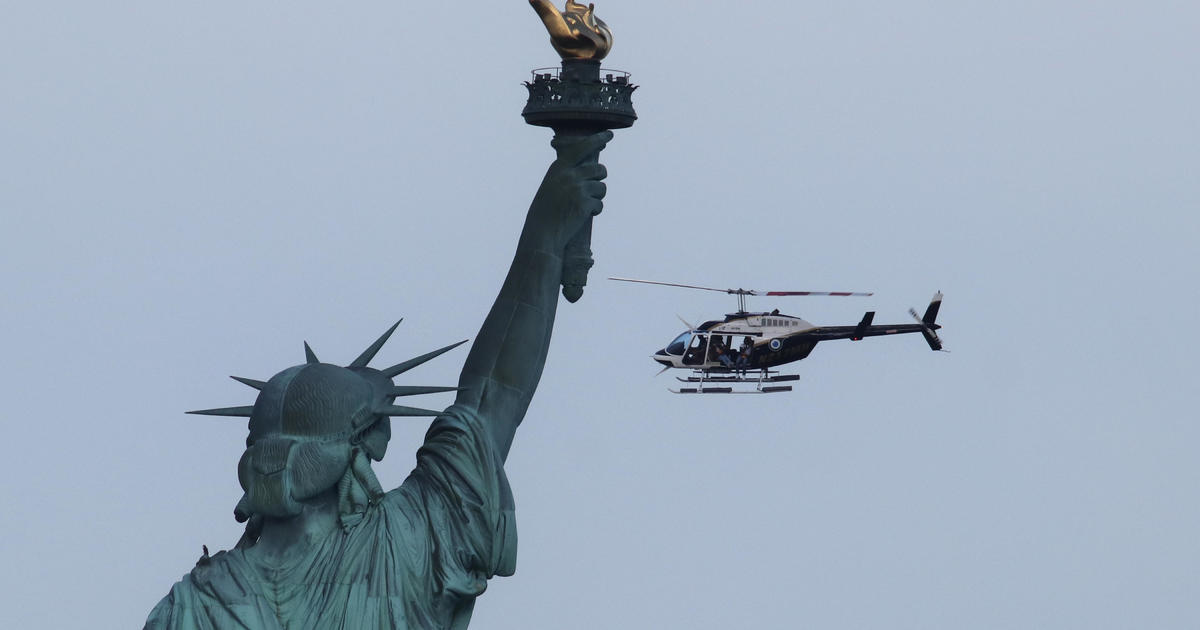NYC Monuments Review Commission Holds First Meeting Behind Closed Doors
NEW YORK (CBSNewYork) -- Mayor Bill de Blasio's monument review commission met for the first time Tuesday behind closed doors.
The commission of city art, monuments and markers is made up of a diverse group, ranging from performer and civil rights activist Harry Belafonte to the president of Spelman College in Atlanta, Mary Schmidt Campbell.
Writers, artists and anthropologists are also in the mix. The commission is being chaired by the city's Commissioner of Cultural Affairs Tom Finkelpearl and the president of the Ford Foundation, Darren Walker.
The co-chairs called the meeting an "important step in the commission's work."
"While recent events have placed an understandable urgency on our work, these are by no means new controversies. Public sculptures and monuments have sparked intense debates stretching back decades. Monuments are lasting embodiments of our city and nation's people," they said in a statement. "Our goal is to make our public landscape more reflective of that rich and complicated history. This thoughtful community conversation is our city's first ever attempt at making these important strides possible."
As WCBS 880's Rich Lamb reported, the commission's first meeting was shrouded in secrecy. Its location was not disclosed, and neither the public nor the media were allowed to attend.
"It's absurd. And the point of this was to have public input, to have a debate in public. And we see the mayor and his commission acting in secret," Staten Island Republican Council Member Joe Borelli said. "It goes against everything they've been trying to say about this."
Borelli called it appalling.
"These are statues -- whether it's Columbus or any one of the other people whom we don't even know, who is now on trial in secret," he said. "These are people that the public cares a great deal about and deserves to have a voice on."
The New York Press Club also issued a statement, saying it was "surprised and dismayed" by the decision to hold the meeting behind closed doors.
"The mayor's office released a brief statement saying 'we expect opportunities for press coverage in the future and will keep you posted.' This explanation is unacceptable. Meetings of publicly appointed bodies should be open to the public. There is great interest in this issue; the public deserves a voice," the statement read in part. "Excluding the public and press also runs contrary to Mayor de Blasio's pledge of transparency in his administration. All future meetings of this commission should be open to the news media and the general public."
The co-chairs said the commission will be hosting an online survey and public forums across the city. More information is expected on those "in the coming days."
Tuesday's meeting came a day after crowds booed de Blasio during Monday's Columbus Day Parade on Fifth Avenue.
Participants voiced their displeasure that monuments dedicated to Christopher Columbus are among the statues that may be considered in the debate over controversial statues and plaques on city property.
"No one's moving any statues, no one's changing anything in the short term," de Blasio said. "We're going to have a real public discussion about how we address issues of the past that should be talked about in a responsible manner."
While the mayor's office has said there's no plan to touch the Columbus statue in Columbus Circle, some other plaques and monuments in the city are on their way out, CBS2's Janelle Burrell reported.
Over the summer, the mayor said a sidewalk tribute to Henri Philippe Petain in the Canyon of Heroes will be removed. Petain was a French general who collaborated with Nazis.
Two plaques dedicated to Confederate Gen. Robert E. Lee were taken down in Brooklyn and on the campus of Bronx Community College, administrators there have decided to take to down statues of Lee and another general of the Confederacy, Stonewall Jackson.
The mayor says just because a monument may be found to be controversial, it doesn't mean it will have to go.
"I've said there are a lot of different solutions, including something as simple as putting additional historical markers up to tell other elements of the history," he said.
At some point, the commission will hold public meetings and hearings where people can voice their opinions and concerns, Burrell reported.
The commission was announced in the wake of violence in Charlottesville following the decision to remove statues of Confederate generals.



